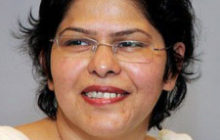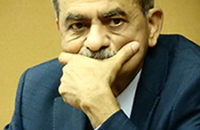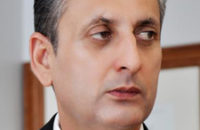Sune Engel Rasmussen in Kabul and Julian Borger in Washington -The Guardian
The Trump administration is considering taking a harder stance against Pakistan for supporting terrorist groups in Afghanistan, but experts warn that pressure alone will not bring peace.
Similar tactics have failed in the past, and analysts warn that the US can only influence the south Asian country by coupling force with diplomacy, which Donald Trump seems to shun.
And attempts to strong-arm Islamabad could push it deeper into a growing alliance with China and Russia, and lead to more instability.
China in particular offers Pakistan an opportunity to counter the strengthened union between the US and India, whose presence in Afghanistan the Pakistani military considers an existential threat.
Among the tools considered by the Trump administration, according to Reuters, are expanding drone strikes, withholding aid and revoking Pakistan’s status as a major non-Nato ally.
But attempts to bully Pakistan into submission will only drive Islamabad further toward China, said Ayesha Siddiqa, author and research associate at the School of Oriental and African Studies in London.
“It also means that in Afghanistan, there will be more violence. Pakistan sees Afghanistan as an American-Indian project against Pakistani interests,” she said.
Pakistan is widely believed to harbour and support Taliban militants, and has been regarded as a spoiler in peace talks.
US policy on Afghanistan is evolving at a time when the defence department is particularly powerful in policy-making, after Trump delegated authority to his defence secretary, James Mattis, to set troop deployment levels there.
Meanwhile the state department is weakened by a continuing outflow of veteran diplomats and a notable lack of urgency in replacing them on the part of the secretary of state, Rex Tillerson, who has backed plans to cut the departmental budget by a third.
On Friday, the acting special representative for Afghanistan and Pakistan (SRAP), Laurel Miller, left the post along with her deputy, leaving doubts over the future of the position, which was created in 2009 by Barack Obama. A state department statement said that Tillerson “has not made a decision” on the issue.
“It’s a distinction without a difference whether a decision has been made, since there is functionally nobody in the office,” said James Cunningham, a former US ambassador to Afghanistan. “The key part of this isn’t whether there is an SRAP office. It is how is the senior official who is responsible for these issues, and as far as I know, that basically doesn’t exist. This is all part of the whittling down, eviscerating, debilitating of the state department’s ability to participate effectively in diplomacy.”
Economically, China has long surpassed the US in importance in Pakistan. The crown jewel in China’s Pakistani venture is a $62bn infrastructure project, the China-Pakistan Economic Corridor. But China has also acquired everything from power companies and contracts to collect garbage to stakes in the Karachi stock exchange.
“It’s unprecedented and very different from what Pakistani-American relations ever were. While the US invested in Pakistan, its dominance will never be like what the Chinese will be,” said Siddiqa.
For Russia, a US-Pakistani rift opens space to oppose American power, as it does through proxies in Syria.
Western officials in Kabul believe, partly for this reason, that Russia has increased its weapons support for the Taliban.
“If I were Putin, I’d be smirking and thinking, this is my chance to get back at the Americans and turn Afghanistan into another Vietnam,” said Siddiqa.
Russia has admitted to sharing intelligence with the Taliban, to fight Isis affiliates.
The Pakistani defence minister has called on Russia to take the lead in stabilising Afghanistan, and in September, Russia and Pakistan conducted their first joint military drill near Peshawar.
However, Hassan Askari Rizvi, a Pakistani analyst, said there is a limit to how much diplomatic turbulence countries in the region are willing to cause.
“For Russia, the first preference in south Asia is obviously India, and therefore Pakistan is not expecting a major shift in relations in the near future,” he said. “There may be a downgrading of relations between them, but Pakistan and US will not totally abandon each other.”
However, he cautioned against intensifying drone strikes on Pakistani soil. “Drones will not help,” he said. “If they are used on the mainland, Pakistan will not accept it, and might retaliate by shooting some drones down,” he said.
Barack Obama also tried to coerce Pakistan, by cutting economic assistance and lowering diplomatic contacts. For instance, Obama never visited Islamabad in his eight years as president.
Obama also reached out to Pakistan’s arch-rival, India, whose prime minister Narendra Modi was welcomed by Trump at the White House on Monday, amid reports that India would buy 22 US Guardian drones for its navy and discuss the possible shift of production of F-16s fighter jets to India.
“Thank you very much for … ordering equipment from the United States. Always makes us feel very good,” Trump said in a joint appearance with Modi in the White House cabinet room. “There’s nobody makes military equipment like we make military equipment.”
If one thing unites various regional powers, it is suspicion of American motives in Afghanistan. In a desire to deny the US its monopoly as a powerbroker, Moscow invited delegates from 12 countries to a peace conference on Afghanistan in March.
Meanwhile, the US is likely planning a deployment of 4,000 additional troops to its longest war.
Countries in the region have long suspected the US of wanting a permanent base in Afghanistan under the guise of fighting terrorists. “They do not believe in the counter terrorism bona fides of the US,” said Barnett Rubin, director of the Afghanistan-Pakistan Regional Program at New York University.
He added that a troop surge and hard Pakistan line can only succeed if coupled with strong diplomacy. “But they can’t do that by slashing the state department by one-third,” he said.
Afghans have lived under a geopolitical tug-of-war since Russia’s and Britain’s 19th century Great Game. Now it seems more countries than ever are willing to expend political and economic capital to maintain a foothold.
“Unless there is an agreement about Afghanistan between Iran, Russia, China, Pakistan, India and the US, Afghanistan will be unstable,” Rubin said. “And if the idea is that Afghanistan is defended and secured by becoming an American base, there won’t be an agreement.”

























